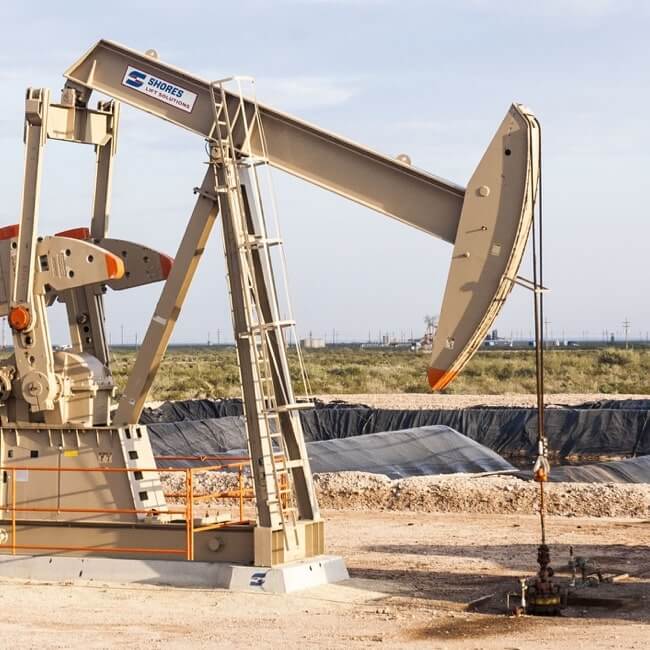US sanctions: What now for Venezuela's oil sector?

Venezuela's oil and gas sector will not be heavily impacted – at least in the foreseeable future – by a US decision to reimpose sanctions on the country, experts told BNamericas on Thursday.
Washington revoked a license that temporarily eased restrictions against the South American nation's hydrocarbons sector on Wednesday after President Nicolás Maduro's failure to meet election commitments.
The US Treasury Department ordered oil and gas companies to "wind down" their operations in the OPEC member country within 45 days but said new licenses could be issued on a case-by-case basis.
"A door has closed but different windows have opened," José Chalhoub, a Caracas-based consultant for Venergy Global and Orinoco Research, told BNamericas in a telephone interview.
"Behind the legalities there are still opportunities that can be taken through special licenses issued by Washington."
Special permission for Chevron to produce Venezuelan oil and export it to the United States remains in place.
Chevron is currently producing around 170,000b/d of oil in the country and is on track to reach 200,000b/d by December, according to consultancy Rystad Energy.
"The license involving Chevron is the most important because it allows Venezuelan crude to be sold in the United States," Antero Alvarado, a managing partner of Gas Energy Latin America, told BNamericas.
According to Francisco Monaldi, a Latin American energy policy expert at Rice University in Houston, Venezuela's crude production expansion plans are unlikely to be affected by Washington's decision.
He added that the key authorization for upstream development in Venezuela is the so-called general license 41, involving Chevron.
"The non-renewal of general license 44 will have minimal impact on investment, especially if specific licenses to European companies are granted," Monaldi said.
"Its limited impact on production depends on diluent availability. There will be an impact on [state oil company] PDVSA’s sales unless major buyers, like Reliance, obtain a license to buy."
Maduro responded to the announcement with defiance, showing no sign of ceding to the Biden administration's demands.
"There is no sanction, no threat that could harm our effort to build a new productive economic model because we don’t depend on anyone in this world," Maduro said in a televised speech.
The US agreed to temporarily lift some sanctions last October after the Maduro regime – denounced as a dictatorship by the White House – agreed to take steps to ensure a fair and transparent presidential election this year.
But the panorama changed in late January when leading opposition candidate María Corina Machado was banned from running for office by Venezuela's supreme court.
"We are concerned that Maduro and his representatives prevented the democratic opposition from registering the candidate of their choice, harassed and intimidated political opponents, and unjustly detained numerous political actors and members of civil society,” US State Department spokesman Matthew Miller said.
Subscribe to the leading business intelligence platform in Latin America with different tools for Providers, Contractors, Operators, Government, Legal, Financial and Insurance industries.
News in: Political Risk & Macro (Venezuela)

Venezuela’s Guyana land claim a ‘major headache’ for Trinidad
President Nicolás Maduro published and ordered the distribution of a new map showing Essequibo in Venezuelan territory.

The widening cracks in Brazil's security, trade diplomacy
Brasília is dealing with a spat it didn't choose, while the Mercosur-EU trade deal, expected to be the stellar achievement in the government's firs...
Subscribe to Latin America’s most trusted business intelligence platform.
Other projects
Get key information on thousands of projects in Latin America, from current stage, to capex, related companies, key contacts and more.
- Project: Jemi
- Current stage:

- Updated:
2 days ago
- Project: Nus II small hydroelectric plant
- Current stage:

- Updated:
2 days ago
- Project: Cable car to Farellones
- Current stage:

- Updated:
2 days ago
- Project: Solís - León Aqueduct
- Current stage:

- Updated:
2 days ago
- Project: Paysandú Wastewater Treatment Plant (First Stage)
- Current stage:

- Updated:
2 days ago
- Project: Termogaira (Nencol 4)
- Current stage:

- Updated:
2 days ago
- Project: Expansion of corridors on Centenario Avenue (Calle 13, Western Edge of Bogotá)
- Current stage:

- Updated:
2 days ago
- Project: Line 3 of the Panama Metro
- Current stage:

- Updated:
1 day ago
- Project: Sigchos
- Current stage:

- Updated:
2 days ago
- Project: Cablebus (Line 4)
- Current stage:

- Updated:
2 days ago
Other companies
Get key information on thousands of companies in Latin America, from projects, to contacts, shareholders, related news and more.
- Company: Bahia Nickel Ltda. (Bahia Nickel)
-
The description included in this profile was taken directly from an official source and has not been modified or edited by the BNamericas’ researchers. However, it may have been...
- Company: Bimeo Ingeniería en Diseño S.A.S.
- Company: Consórcio Olympus XVII
- Company: Proyectos y Estudios Mineros S.A.C. (PROESMIN)
-
Peru's unlisted private company Proyectos y Estudios Mineros (Lima) provides consultancy services to the mining industry, ranging from planning to supervising mining operations ...
- Company: ECOSolar
-
ECOSolar, a Panama-based renewable energy company, manages investments in solar energy projects. It has invested in a series of solar farms and solar companies in Mexico, Guatem...
- Company: Silverco Mining Corporation





